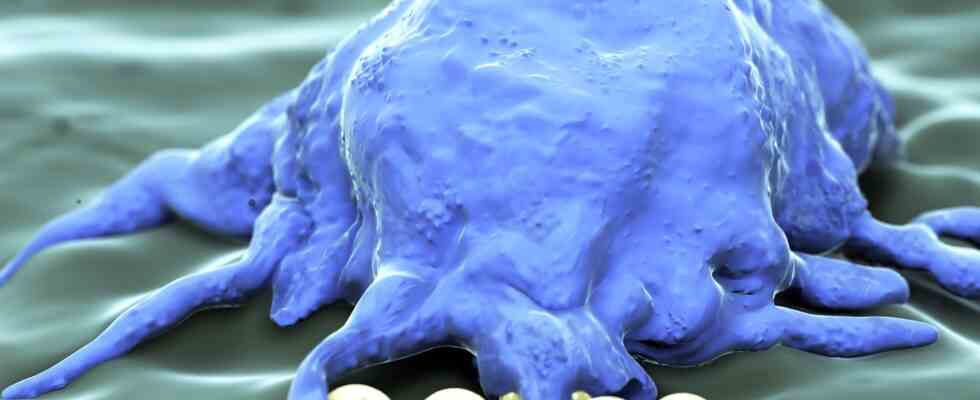This is how the body defends itself against cancer
Our immune system defends itself not only against viruses and bacteria, but also against cancer cells. Degenerate cells are attacked by certain immune cells macrophages, eaten up and digested. However, cancer cells also have mechanisms to protect themselves from the scavenger cells. An English research team has now discovered how the effectiveness of the body’s own macrophages against cancer cells can be increased.
In a recent study, researchers from the University of East Anglia (UEA) and the Quadram Institute in the UK have discovered how the immune system can be tricked into attacking cancer cells more effectively. The research results were recently published in the renowned “Journal of Clinical Investigation” presents.
Chemotherapy is often not enough
“Patients often relapse after cancer treatment because small amounts of the disease remain despite chemotherapy.”explains research director dr Stuart Rushworth from the UEA. The body’s own immune cells are largely responsible for whether a relapse occurs or not.
The immune system defends itself against cancer
In a mouse model of a blood cancer that is difficult to treat, the working group identified mechanisms of the immune system that can be used to: improve cancer treatment. The focus is on the so-called macrophages, which are also known as scavenger cells.
What do macrophages do?
macrophages belong to the group of white blood cells (leukocytes). With the help of tentacle-like gripper arms (filopodia), they take viruses, bacteria, cancer cells, toxins and other pathogens inside, digest them and break them down into usable components.
Using macrophages to treat cancer
As part of the current study, the researchers found that macrophages can be motivated by a protein called STING (stimulator of interferon genes) to targeting cancer cells. The team sees a new treatment option in the discovered mechanism cancerespecially against leukemia.
“Our results shed light on how the immune system can be used to fight cancer when given the right signals”, discusses Dr. Rushworth. Targeted intervention in this biological phenomenon could contribute to Eradicate leukemia in the bone marrow.
“Unfortunately, at present, chemotherapy is often not enough to cure people of leukemia”, emphasizes the study director. He hopes that the new findings can help improve the treatment of leukemia in the future. (vb)
Author and source information
This text corresponds to the specifications of medical specialist literature, medical guidelines and current studies and has been checked by medical professionals.
Author:
Graduate editor (FH) Volker Blasek
Swell:
- University of East Anglia: How the body fights back against cancer (published: 2022-02-28), uea.ac.uk
- Jamie A Moore, Jayna J Mistry, Charlotte Hellmich et al.: LC3-associated phagocytosis in bone marrow macrophages suppresses acute myeloid leukemia progression through STING activation; in: Journal of Clinical Investigation (2022), jci.org
Important NOTE:
This article contains general advice only and should not be used for self-diagnosis or treatment. He can not substitute a visit at the doctor.

